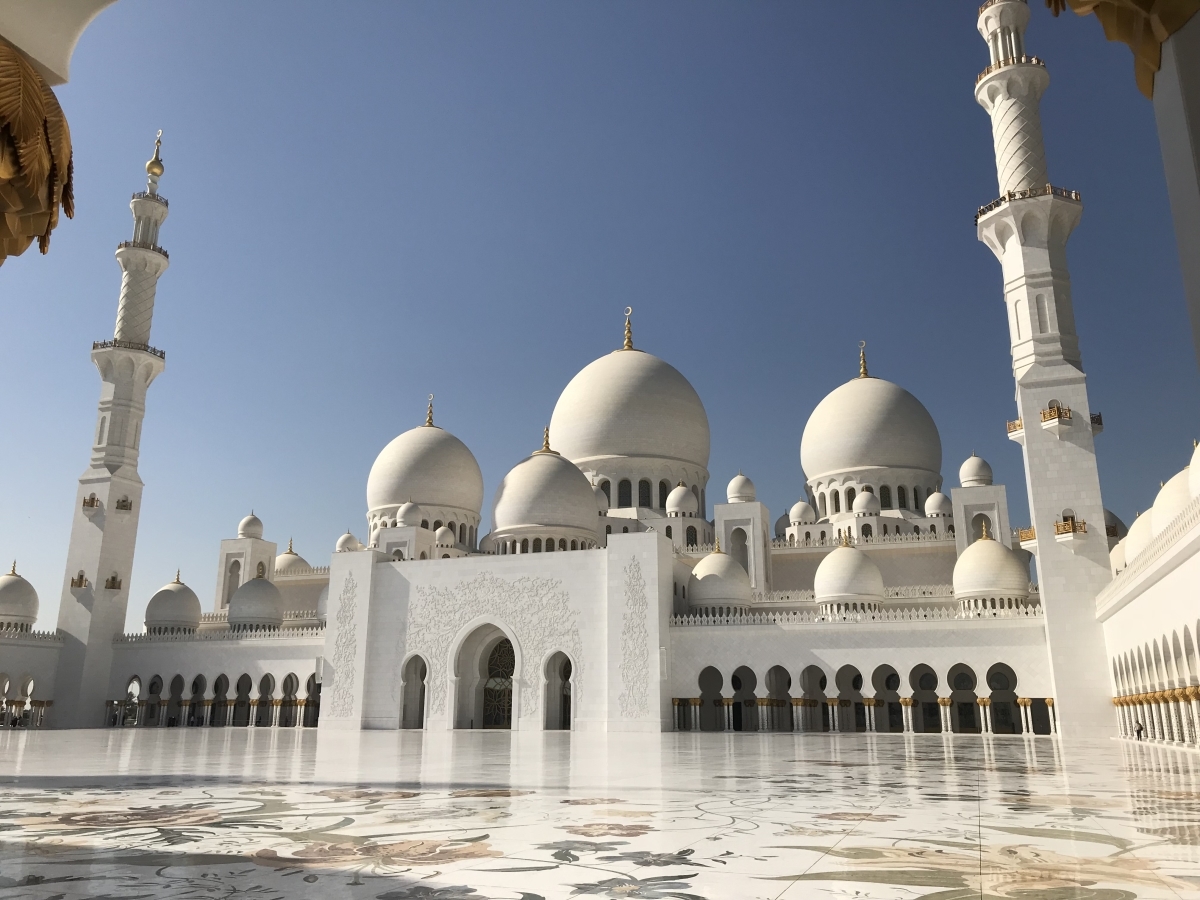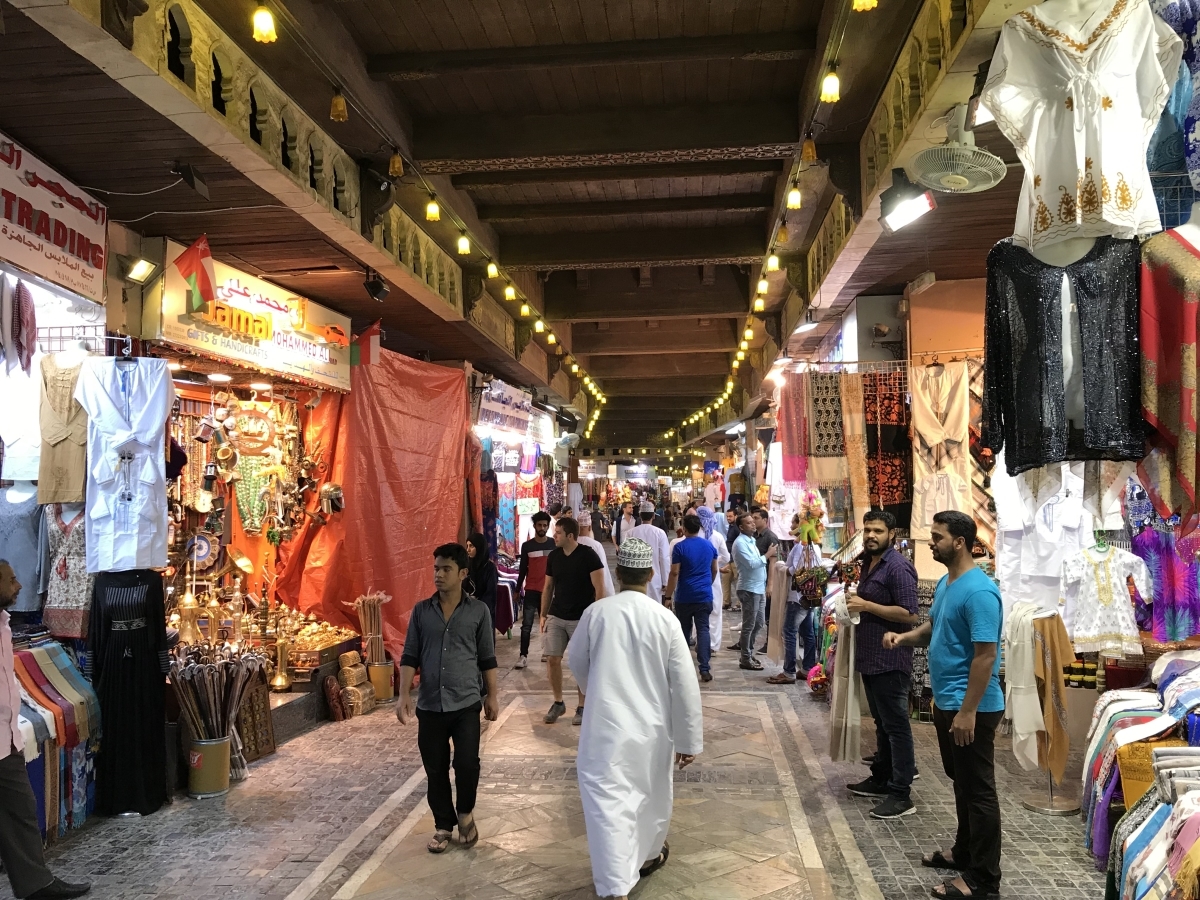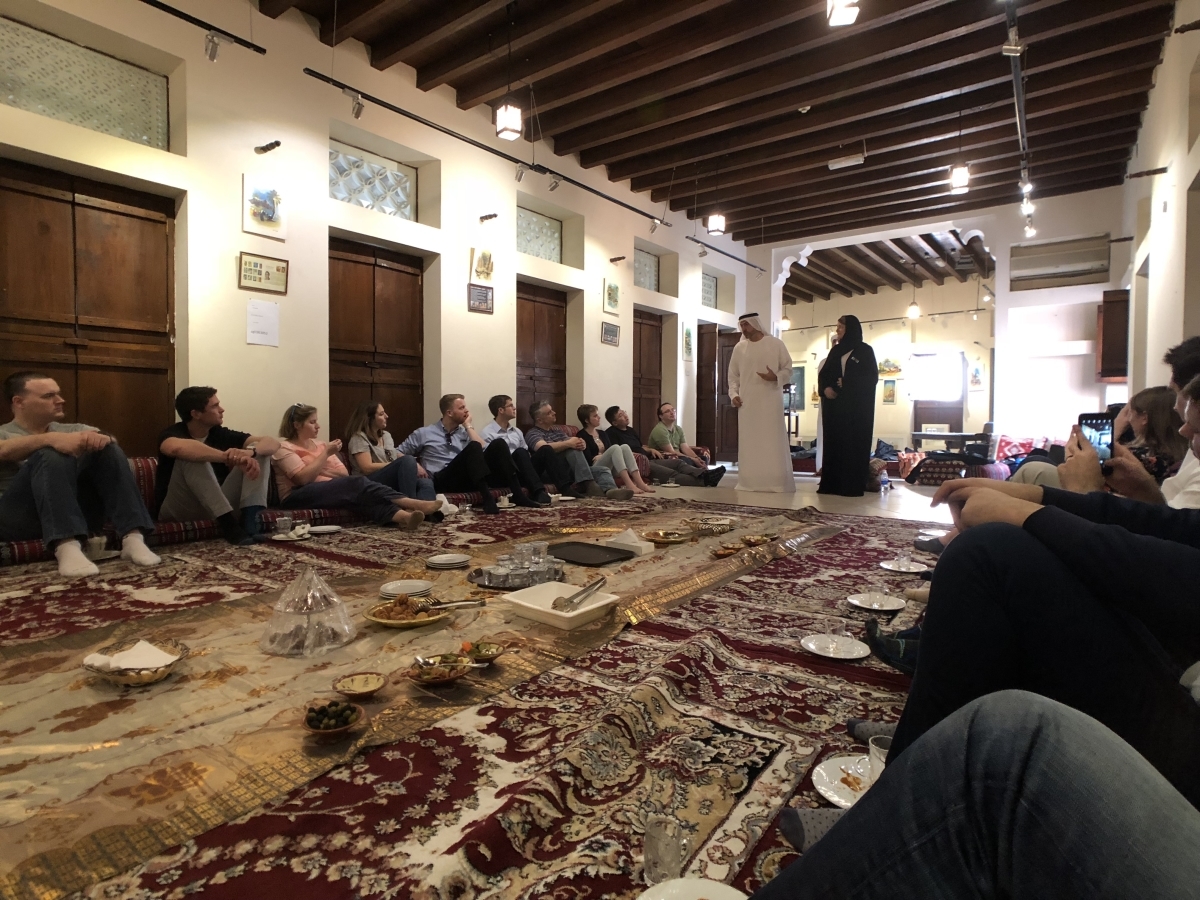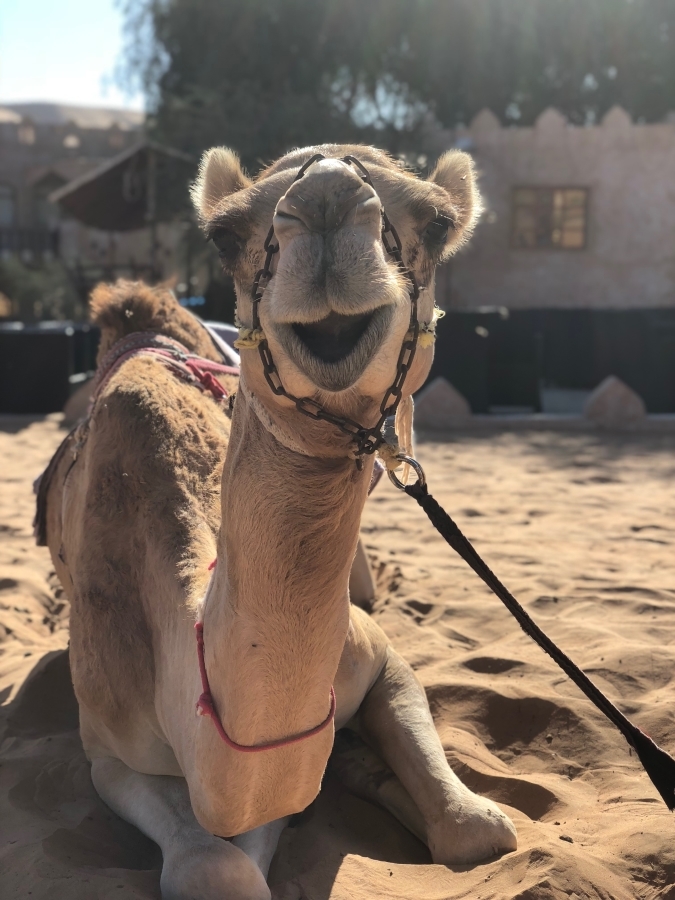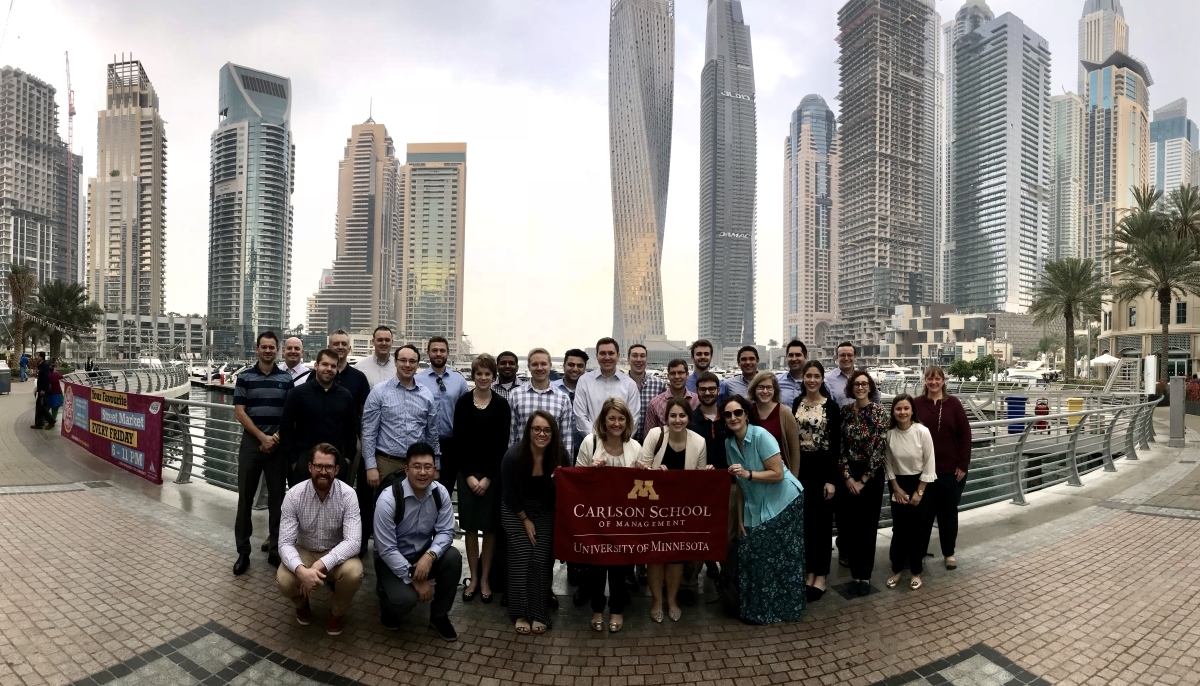Global Experience: Study Abroad in UAE & Oman
Friday, March 23, 2018
International experience is a requirement of the Carlson MBA program. That can take the form of a study abroad program or a “glocal” course focused on global commerce. The most popular choice among full-time students is to go on a two-week faculty-led trip over winter break of their second year. That’s what I decided to do, but choosing between Argentina, China, India and UAE/Oman was difficult. All of them were appealing in their own way, but I figured the one place I might not go on my own would be the Middle East, so I chose UAE/Oman. The trip included stops in Dubai, Abu Dhabi, and Muscat. In hindsight, it was by far the best decision I could have made.
The largest mosque in the UAE, Sheikh Zayed Grand Mosque in Abu Dhabi
Led by finance instructor Helen “H-Mo” Moser and accompanied by Julie Bartels, who was our site coordinator, 29 full-time and part-time students made the trip. It was a good group and everyone got along well. It was nice having folks from both programs, so we could get to know people we probably wouldn’t have had the opportunity to otherwise. In preparation for the trip, we attended weekly classes during the B-term of the fall semester, which included lessons in Arabic, Islam, and Middle Eastern economics. I would say it prepared us for our trip, but I don’t think anything could have prepared us for the unbelievable experience we had.
Shopping for fabrics, incense, spices, and gold at the Muttrah Souq in Muscat
Living in the United States, it’s hard to know what to expect until you visit these countries. More importantly, it’s impossible to know the people until you talk to them. The West and the Middle East have a long history of tension and misunderstanding, so it’s easy to misinterpret who these people are and how they would receive us. However, they were some of the kindest and most welcoming people I’ve ever met. Not only was there no tension, but we felt right at home. In fact, it felt more like the United States than most places in Europe, especially in the UAE. Everything is new and big. Other than some people walking around in dishdashas, it could have been the southwest United States, and we felt completely safe. We actually felt safer walking down the streets in these cities than in many cities in the U.S.
Enjoying lunch at Al Ahmedia Guest House with Nasif Kayed of the Arab Culturist Group
Being Arabian and Islamic there are cultural differences, but they’re not as extreme as you may think. The UAE and Oman are two of the most progressive countries in the region. They have different traditions, but for the most part, their way of life isn’t much different from our own. We visited mosques, souqs (markets) and cultural centers, which helped us gain a better understanding of their society. We also visited businesses like Nakheel Properties and Alizz Islamic Bank, and the Oman Chamber of Commerce, where we spoke with a panel of business women, which gave us insight into how business operates in these countries. However, their approach to business was probably the hardest thing for us to grasp. They’re much more family and community oriented when it comes to partnerships and investments, and being monarchies, there doesn’t seem to be as much emphasis on profits, which came as a shock to us American business students. It just proves why gaining international experience is so important, especially in the global economy.
A photo favorite camel at the desert camp in Oman
It’s hard to appropriately explain our experience in UAE and Oman, but that’s why I highly recommend going there yourself. Dubai is extreme in every possible way, Abu Dhabi is a cultural center, and Muscat, which was my favorite, is charming and completely unpretentious. You wouldn’t regret it.
Seeing the sites at the artificial canal district of Dubai Marina
